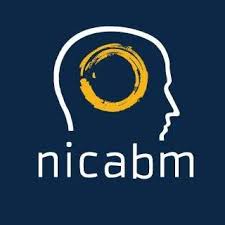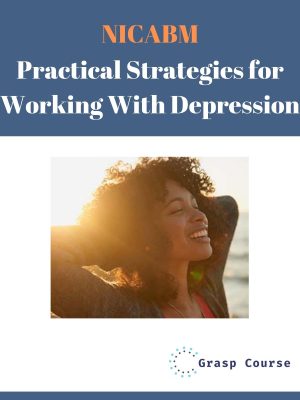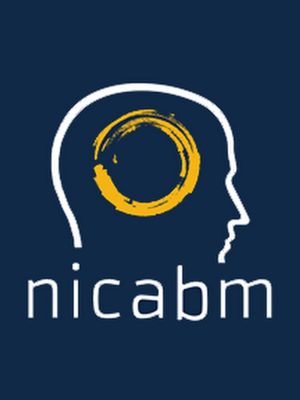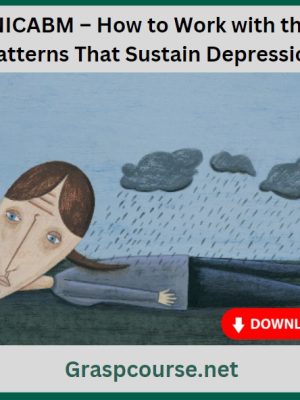NICABM – How to Foster Post-Traumatic Growth
$197.00 Original price was: $197.00.$92.00Current price is: $92.00.
A New Short Course. How to Foster Post-Traumatic Growth. How to Help Clients Engage with the Pain of Trauma to Foster Growth. How the body’s neurobiological response to trauma can trap clients in self-blame. The two vital functions that get powerfully inhibited during the body’s freeze…
NICABM – How to Foster Post-Traumatic Growth
How to Help Traumatized Clients Move Out of “What Was” and into “What Can Be”
Practical Treatment Strategies to Foster Post-Traumatic Growth
Some clients emerge from trauma with a fragile grasp on their new world . . .
. . . while other clients experience a robust level of personal and spiritual growth that might never have happened without the trauma.
What makes the difference?
To help our clients move beyond “what was” and into “what could be,” we have to first address how they orient to the world.
We need to deal with the specific neurobiology of trauma that can trap them in self-blame, and rewire the one natural instinct that can lead to long-term distress.
And then we have to help our clients uncover the critical key to post-traumatic growth that’s often hiding right inside of their pain.
So we reached out to 16 of the top experts in the field for their practical strategies and insights on how to foster post-traumatic growth. We then created a brand new course . . .
A New Short Course
How to Foster Post-Traumatic Growth
How to Help Clients Engage with the Pain of Trauma to Foster Growth
Steven Hayes, PhD Ron Siegel, PsyD
Kelly McGonigal, PhD Rick Hanson, PhD
- The critical connection to pain that lays the groundwork for change
- The one factor that blocks the pivotal transition from trauma to growth
- The 4-stage process that helps clients find meaning from their pain
- The “gut check” that reframes trauma and fosters growth
The Neurobiology of Post-Traumatic Growth
Stephen Porges, PhD Pat Ogden, PhD
Joan Borysenko, PhD Kelly McGonigal, PhD
- How the body’s neurobiological response to trauma can trap clients in self-blame
- The two vital functions that get powerfully inhibited during the body’s freeze response
- Why a client’s state of arousal can affect the integration of unprocessed trauma (and how to work with it)
How to Reframe the Context of Trauma to Shift Clients Out of Self-Blame
Rick Hanson, PhD Kelly McGonigal, PhD Ron Siegel, PsyD
- What can go wrong when you help a client attach meaning to their trauma
- The crucial difference between justice and grievance and how this nuance can ignite change
- One liberating switch in perspective that can give clients agency in their future
The Critical Role of Connection in Post-Traumatic Growth
Sue Johnson, EdD Kelly McGonigal, PhD Joan Borysenko, Ph
- How to help clients without secure relationships move into post-traumatic growth
- How this one element of trauma recovery can help determine whether the client relapses
- The one particular kind of relationship that can have a deeply profound effect on fear and rage
- The specific feeling state that’s one of the most powerful predictors of post-traumatic growth (and how to promote it)
How to Promote Growth After Early Life Trauma
Marsha Linehan, PhD Ron Siegel, PsyD
Kelly McGonigal, PhD Rick Hanson, PhD
- How to help clients repair supportive family relationships broken by trauma
- The adaptive coping model that releases vengeance and helps clients regain their inner freedom
How to Help Clients Make Sense of a World Altered by Trauma
Shelly Harrell, PhD Kelly McGonigal, PhD Ron Siegel, PsyD
- One thing you should avoid in treatment so you don’t negatively impact a client’s sense of self
- How to help clients stop clinging to the self-states that are blocking growth (and a simple exercise that will help)
How Your Choice of Language Can Transform an Intervention (And Foster Growth)
Scott Miller, PhD Kelly McGonigal, PhD
Ron Siegel, PsyD Joan Borysenko, PhD
- The powerful non-reaction that can radically change the way a client sees themselves
- One game-changing mental checkpoint to use when responding to a client’s story
- Two words that can liberate a client from shame and vulnerability
One Crucial Way the Practitioner Can Ignite Accelerated Growth
Michael Yapko, PhD Ron Siegel, PsyD
- How to help clients stop using their past trauma to make future decisions
- How to work with the rumination that anchors clients to the past
- The specific skill set that can derail self-perpetuating patterns of trauma
Get 3 Bonuses That Give You Even More Strategies to Foster Post-Traumatic Growth
Bonus 1
How to Foster Post-Traumatic Growth in Relationships
Stan Tatkin, PsyD, MFT
- How Trauma Creates an “Anti-Novelty” Problem That Can Harm the Healing Potential of Relationships
- How to Work with Unresolved Trauma That’s Hurting a Client’s Relationships
Bonus 2
How to Help Clients Who Are Suffering From a Loved One’s Trauma (Vicarious Trauma)
Rick Hanson, PhD Christine Padesky, PhD
Kelly McGonigal, PhD Joan Borysenko, PhD
- How to Help Clients Cultivate a Sense of Separation From a Past Trauma
- How to Help Clients Grow from a Situation They Are Powerless to Affect
Bonus 3
How to Help Clients Complete the Journey From Trauma to Post-Traumatic Growth
Joan Borysenko, PhD Bill O’Hanlon, LMFT
- Working with Rites of Passage – The Three Stages That Come Between a Traumatic Event and Post-Traumatic Growth
- 3 Core Elements That Can Move Clients From Pain to Growth
Why the Transcript Is Essential:
Click the image to enlarge
-
- The transcript makes it easy to go back and double check concepts, citations and names that are mentioned
-
- We put in a table of contents to make it easy for you to find the exact part of the session you need
-
- Having the concepts already written allows you to take notes on how you’re going to use the ideas rather than transcribing the ideas
-
- Some people simply learn better by reading than by listening or watching
- You will be able to print out and share techniques presented in the session with your patients
Read more: http://archive.is/xM1qD
Be the first to review “NICABM – How to Foster Post-Traumatic Growth” Cancel reply
Related products
Personal Development
NLP - Self-help - Dating
Personal Development
Personal Development
Personal Development
NICABM – How to Work with the Patterns That Sustain Depression
Health & Medical
Personal Development
Health & Medical













Reviews
There are no reviews yet.